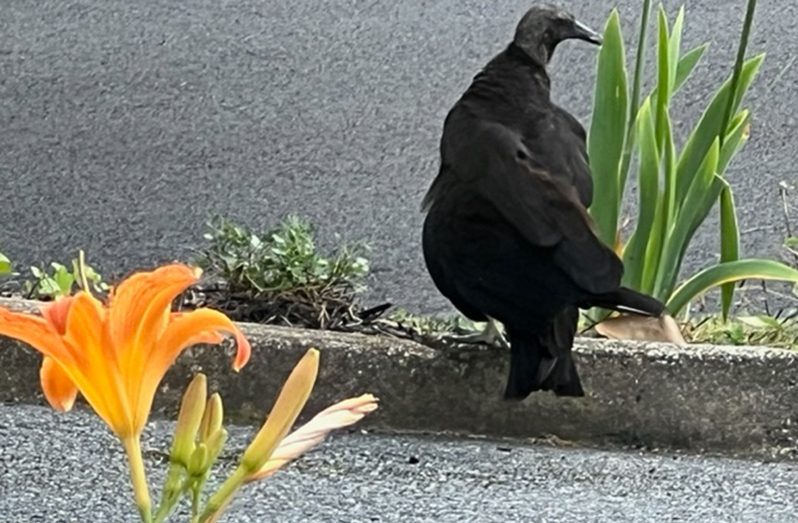By Francis Quamina Farrier
Have you ever paused from your busy schedule to realise the many situations in which birds and animals enjoy some of the freedoms which humans don’t have? For example, national borders. Birds fly to and fro across national borders without a care in the world. I have often observed that adventure on wings, when at Lethem in the South Rupununi, Region Nine. Of all the birds that fly the friendly or unfriendly skies, the carrion crow is the least liked or appreciated, for that matter. However, the carrion crow should be considered a friend of humans for the necessary voluntary cleansing work they do. I once saw the carcass of a dog killed on the street at Lethem reduced to a clean skeleton by crows within a few hours.
While on another visit to Lethem in the Rupununi, I saw one of these jet-black birds gliding to and fro across the Takatu River which separates Guyana and Brazil. That bird had absolutely no concern about immigration laws between the two countries, as humans have to. People must possess certain documents to engage in legal journeys from one country to another. A valid passport or some other acceptable travel document is mandatory. However, there are no such constraints with the humble carrion crow and other birds and animals. Border rivers, such as the Takatu and the Iring on Guyana’s western border, have no greater significance for carrion crows or other birds except their need for water.
There are those times when it is appropriate for humans to recognise our limitations. While man has ventured to the moon and the depths of the ocean, there are many constraints. The recent deep-sea disaster in which five lives were lost in an ocean exploration to view the iconic TITANIC, which sank in one of the worst ocean disasters in history, is evidence that man does have some limitations with outer space and deep sea exploration at this time. Maybe the limitations faced in 2023 may no longer be there a decade or two from now. Meanwhile, some adventures are still calculated risks.
When I did a three-day solo hike from Georgetown to McKenzie, it was well calculated, despite some risks. The Soesdyke-Linden highway was not yet constructed, and two of the three days of my journey, were through the forest. On the first night, I slept ‘rough’ at the Timehri airport. On the second night, I slept ‘rough’ on the ground in the forest. Pleasant dreams. On the third day, I arrived safely at my intended destination, only to be immediately stopped and frisked by the Guyana Defense Force ranks. A security incident had occurred on the MV R.H. CARR – the Georgetown to McKenzie Demerara River steamer. My interrogators quickly realised that I had indeed just completed a three-day 65 mile journey on foot and offered me congratulations.
As for borders, I couldn’t care when I exited Region Four into Region 10. Feeling like a free bird, that man-made boundary was of little significance to me. What really mattered was that I was young and adventurous and enjoying my life in the beautiful country of my birth; a country I love and know much more about than most others due to my extensive travels around the country over the decades.





.jpg)








